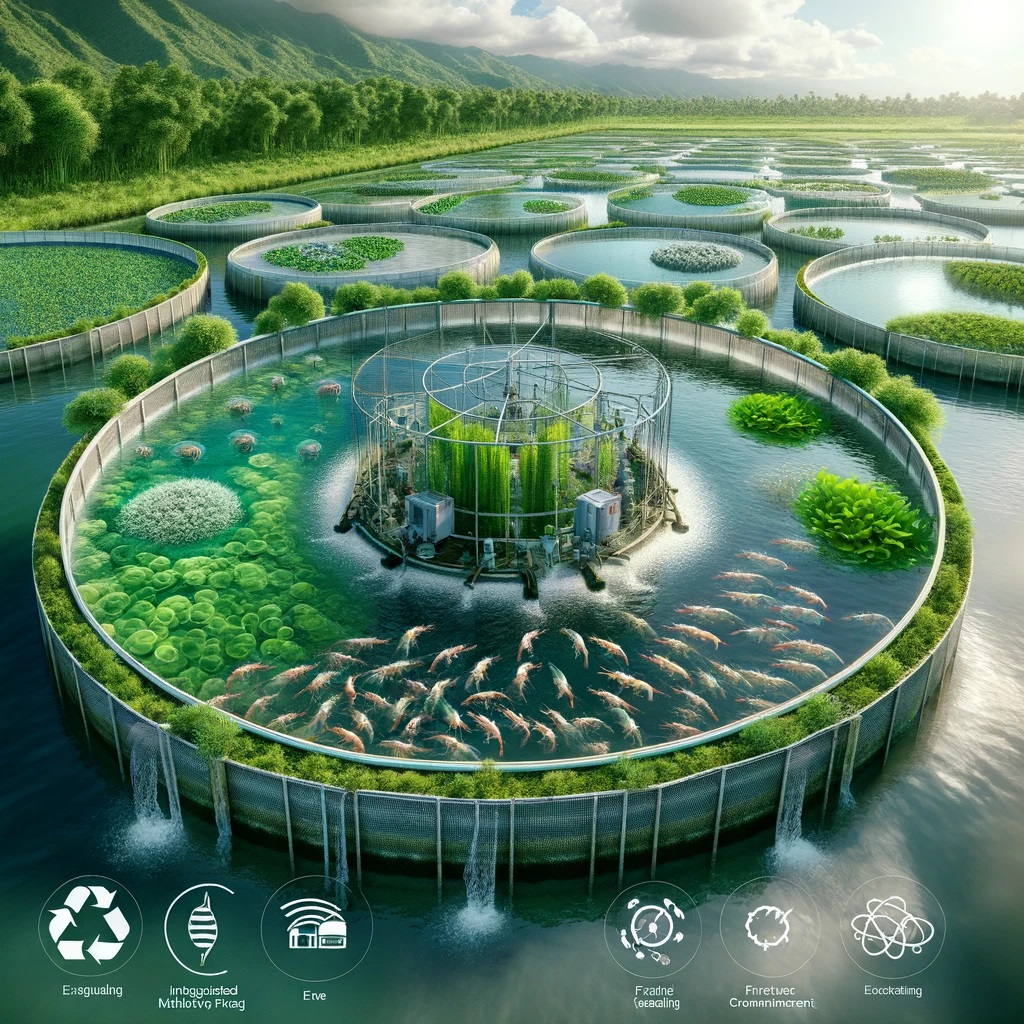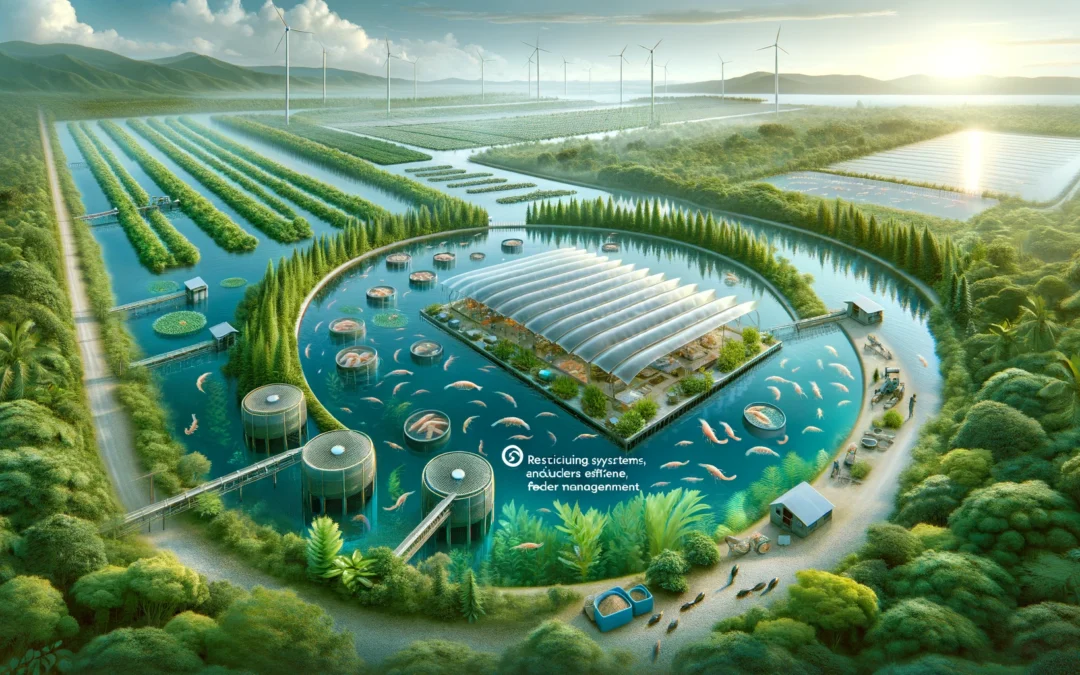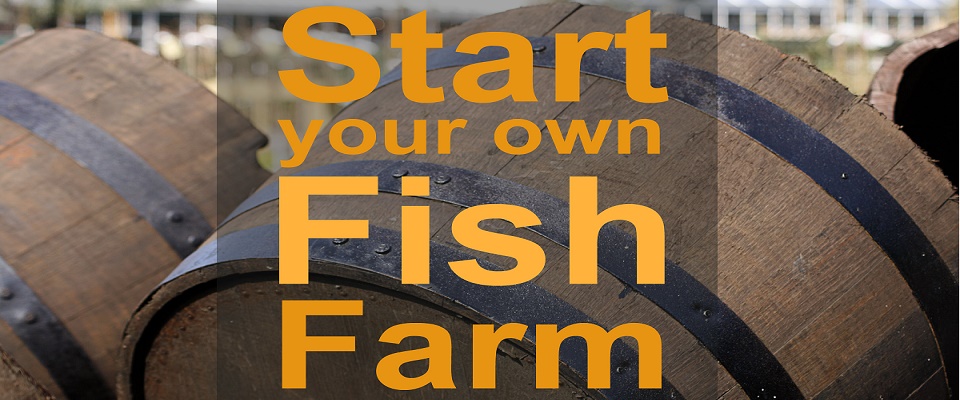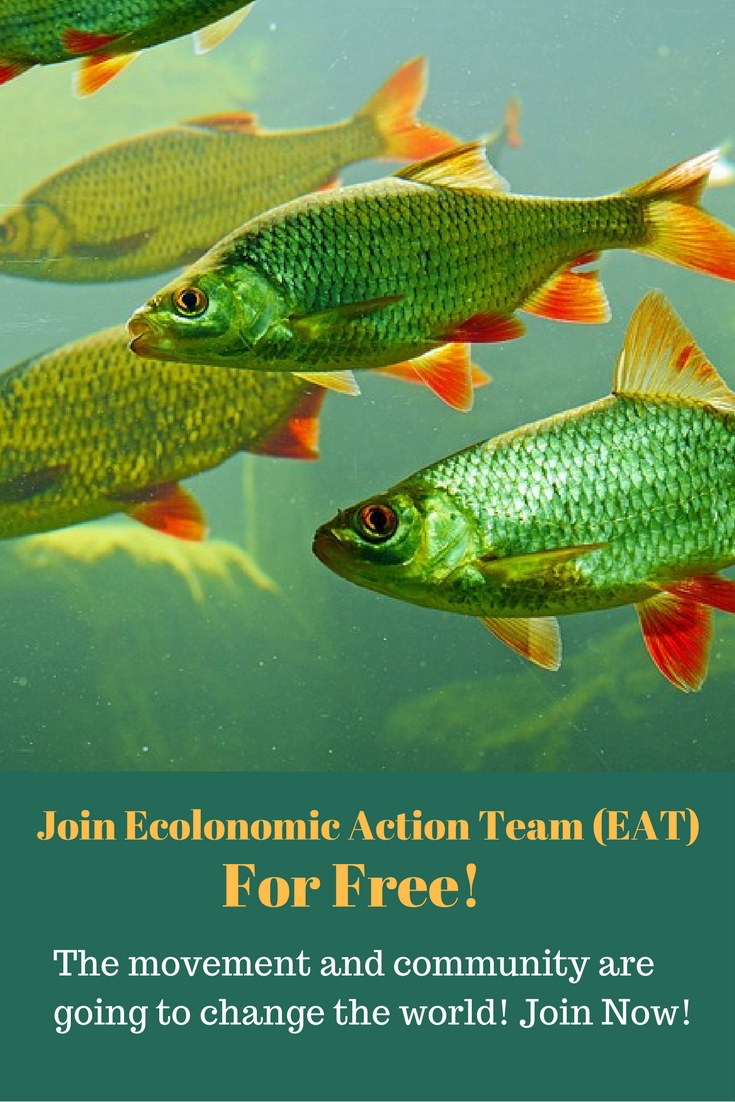Shrimp farming stands at a crucial intersection of economic viability and environmental sustainability. As the aquaculture sector grows, the imperative to adopt sustainable practices becomes ever more urgent. This article explores how the industry is pivoting towards a circular economy model to minimize waste and maximize resource efficiency.
Understanding Circular Economy in Shrimp Farming
“A circular economy is not just a strategy for environmental sustainability but also a pathway to robust economic benefits,” explains Dr. Wayne Dorband, an aquaculture sustainability expert. In shrimp farming, this involves transforming all outputs, including waste, into valuable inputs for other processes.
Integrated Multi-Trophic Aquaculture (IMTA)
IMTA stands as a prime example of circular economy principles in action. “By integrating shrimp farming with the cultivation of seaweeds and filter-feeding organisms, we can drastically reduce waste,” Dr. Dorband says. This system uses the waste nutrients from shrimp ponds as food for other species, thus creating a balanced aquatic ecosystem that mimics nature.
Utilizing Pond Sediment
In traditional shrimp farming, pond sediment is often considered a disposal problem. However, as Dr. Dorband points out, “This organic-rich sediment can be repurposed as a resource.” Innovative approaches now turn this sediment into fertilizer for agriculture, transforming waste into wealth.
Innovations in Resource Management
Efficient resource use is critical in minimizing environmental footprints and enhancing the sustainability of shrimp farms.
Efficient Feed Management
One of the largest sources of waste in shrimp aquaculture is unused feed. “Precision feeding technologies allow us to use feed more efficiently, reducing both costs and environmental impact,” states Dr. Dorband. By closely monitoring shrimp behavior and adjusting feeding schedules accordingly, farmers can significantly cut down on waste.

Water Reuse and Recycling
Water is a critical resource in aquaculture. “Recirculating Aquaculture Systems (RAS) represent a significant advancement in water conservation,” Dr. Dorband explains. These systems clean and recycle water within the farm, reducing the need for fresh water and minimizing effluent discharge.
Overcoming Challenges
Transitioning to a circular economy model in shrimp farming is not without challenges. The initial costs can be high, and the technological and knowledge barriers are substantial. Moreover, regulatory frameworks need to catch up to support these innovative practices.
The Future of Shrimp Farming
The future of shrimp farming lies in continuous innovation and collaboration. “As more stakeholders recognize the benefits of circular economy principles, we see greater investment and interest in sustainable aquaculture practices,” Dr.Dorband concludes. With support from governments, industry players, and consumers, shrimp farming can lead the way in sustainable aquaculture.
By adopting circular economy principles, shrimp farming not only tackles its environmental challenges but also sets a precedent for sustainability in the broader aquaculture industry. This approach promises a future where economic growth and environmental health go hand in hand, creating a resilient and sustainable food system.
Take Action for a Sustainable Future
Are you involved in the aquaculture industry, or do you care about sustainable food sources? Now is the time to support and advocate for sustainable practices in shrimp farming. Reach out to local aquaculture firms, participate in discussions, or start your initiative to promote these principles. Every effort counts towards building a sustainable aquaculture ecosystem. Join us in transforming shrimp farming into a model of sustainability and resilience.
Join our EAT Community for learning opportunities and to connect with experts in sustainable practices.
Related Articles and Resources:
- Embracing Sustainability in Aquaculture: A Guide to Healthy Aquatic Farming Practices
- Striking the Right Balance: Sustainable Shrimp Farming and Water Resource Management
- How to manage water effluent from shrimp farms
- Striking the Right Balance: Sustainable Shrimp Farming and Water Resource Management
- What is an Environmental Consulting Business? A Comprehensive Guide for Aspiring Entrepreneurs



